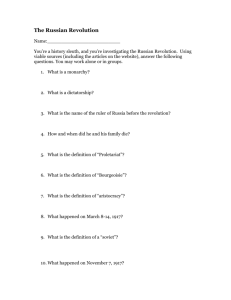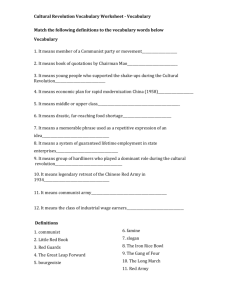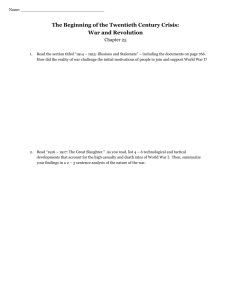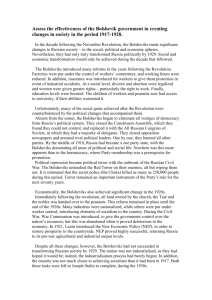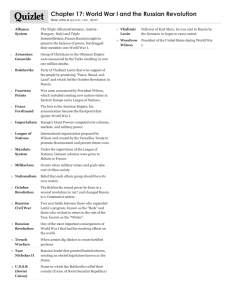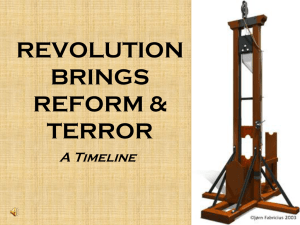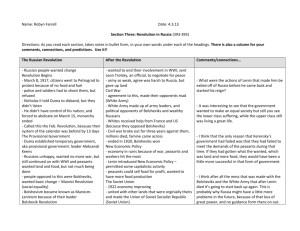AP Euro Seminar
advertisement
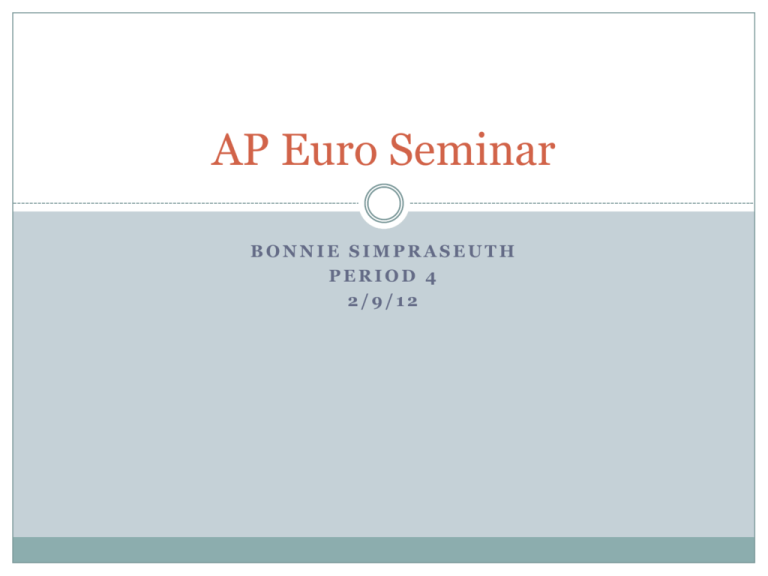
AP Euro Seminar BONNIE SIMPRASEUTH PERIOD 4 2/9/12 Prompt “Every successful revolution puts on in time the robes of the tyrant it has deposed.” Evaluate this statement with regard to the English Revolution (1640-1660), the French Revolution (1789-1815), and the Russian Revolution (1917-1930) Background I. English Revolution (1640-1660) A. Oliver Cromwell (r. 1653-1658) 1) After the execution of King Charles I, Cromwell was the undisputed leader of Parliament 2) Theoretically, legislative power rested in the surviving members of Parliament, and executive power was lodged in a council of state 3) The army that defeated the royal forces now controlled the government, and Cromwell controlled the army English Revolution 1640-1660 I. Cromwell’s military dictatorship A. He favored toleration, and the Instrument of Government gave all Christians, except for Roman Catholics, the right to practice their faith 1) As for Irish Catholicism, in 1649 he crushed a rebellion at Drogheda in Ireland • Cromwell’s forces behaved brutally slaughtering civilians and Irish soldiers B. The state rigorously censored the press, forbade sports, and kept the theaters closed in England French Revolution 1789-1815 I. Maximilien Robespierre (r. 1792-1794) A. The Reign of Terror (1793-1794) used revolutionary terror to solidify the home front. 1) Special revolutionary courts, were responsible only to Robespierre’s Committee of Public Safety, tried rebels and “enemies of the nation” for political crimes 2) These local courts ignored normal legal procedures and judged severely 3) About 40,000 French men and women were executed or died in prison, and another 300,000 suspects crowded the prisons and often brushed close to death in a revolutionary court Russian Revolution 1917-1930 I. Vladimir Lenin (1870-1924) A. He developed a tough, disciplined, and revolutionary party called Bolsheviks 1) Spring of 1920, the Bolshevik red army had defeated the white army, and had retaken Belorussia and Ukraine 2) The following year the Communist also re-conquered the independent nationalist governments of the Caucasus B. Lenin and the Bolsheviks won for several reasons 1) The poorly defined political program of the Whites was vaguely conservative, and it did not unite all the foes of the Bolsheviks under a progressive, democratic banner Russian Revolution 1917-1930 Cont. The Communist quickly developed a better and strictly discipline army, Trotsky’s leadership was decisive • The Bolsheviks had preached democracy in the army and elected officers in 1917 • Red Army Soldiers deserting or disobeying an order were summarily shot The Bolsheviks also mobilized the home front 3) They seized grains from the peasants, and introduced rationing 4) Nationalized banks and industry, and required everyone to work 5) They also maintained labor discipline and to keep the Red Army supplied 2) C. Russian Revolution 1917-1930 Cont. D. “Revolutionary terror” also contributed the Communist victory 1) The old tsarist secret police was re-established as the Cheka, which hunted down and executed thousands of real or supposed foe 2) After the government moved from Petrograd to Moscow in March 1918, a circus clown in Moscow was making fun of the Bolsheviks to an audience • The Chekist in the crowd quickly pulled out their guns and shot several laughing people from the audience • People were shot or threatened with being shot for minor nonpolitical failures 3) The terror caused by the secret police became a tool of the government • The Cheka sowed fear, and fear silence opposition The end
